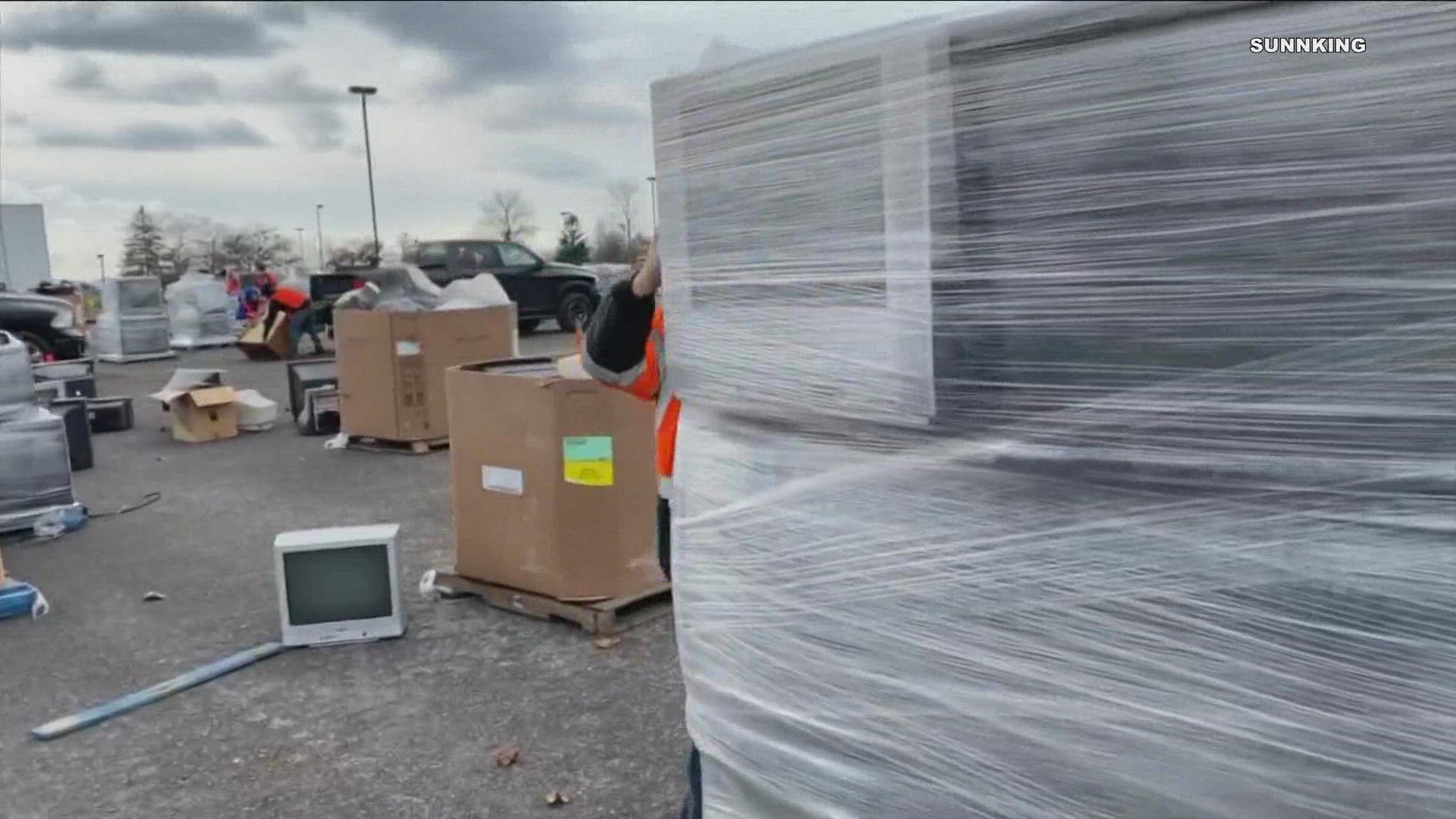BUFFALO, N.Y. — Regional electronics recycler Sunnking says a large scale e-recycling event, scheduled for this weekend in West Seneca, may be the last of those types of events it holds.
The company says this is due to a change in New York State law, which goes into effect In January.
"It's something that a lot of people are still trying to figure out," said Sunnking's director of marketing Robert Burns, regarding a clarification of the state's Equipment Recycling and Reuse Act.
Passed 12 years ago, it required manufacturers to provide free and convenient recycling of electronic waste to consumers.
But in the time since, the DEC found that even if manufacturers weren't directly charging consumers, the in some cases the recyclers that the manufacturer was using were charging municipalities and collection sites to stage large scale recycling events. Those municipalities and collection sites, in turn, would charge consumers to cover their costs to the recyclers.
"It might be five or ten bucks or something," like that, Burns said, regarding the convenience fees that might be imposed by those hosting the events.
However, in the eyes of the DEC, it resulted in the recycling of electronic waste not being free, as intended.
"What this (modification to the law) does is it makes sure that nobody has to pay for recycling any of their residential electronics," Burns said.
However, if Sunnking can't cover its costs associated with staging large scale recycling events, to which thousands often show up, and no town or village can cover their costs to host them, Sunnking says such events like the one scheduled in West Seneca this weekend (for which 2,000 have registered) may be over.
"These events were always something where we weren't necessarily making money off of, but which were more of a public service," Burns said.
Sometimes, the events were used to help raise money for charities.
Instead, Sunnking says it will expand the number of drop off sites it currently has.
"We have about 100 sites in the Buffalo area now," Burns said. "These are partnerships with Goodwill and other companies, where there are drop off sites where they just take the stuff and hold it for us to come pick up."
Adding to the number of drop-off sites would also lead to large scale recycling events becoming less practical.
"While we're opening hundreds of drop off locations near your home for free, where you can drop off things at your convenience, are people going to want to wait six or seven months for the next big drop off event that usually hosts 2,000 people? We're not so sure," Burns said.
Burns also said that while the popular drop off events may not cease to exist entirely, they may be scaled back from several, to perhaps only one per year.

